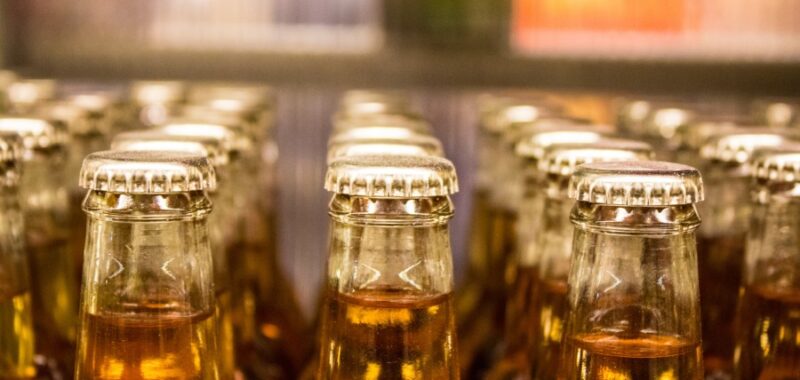
While the Trump administration has put a pause on many proposed new tariffs, some — like the 25 percent tariff on aluminum — are still in play. Coca-Cola chief executive James Quincey said that Coke may increase its use of plastic to mitigate price hikes, as it imports aluminum from Canada for its soda cans.
No matter your stance on President Trump’s tariffs, people who care about reducing pollution and saving money should agree that beverage companies can use this as an opportunity to reduce waste and buy recycled aluminum, which is collected by local recycling programs. It’s un-American not to.
Instead of sitting by while big companies sell more plastic bottles, Congress should adopt a national bottle bill.
For over 40 years now, residents of 10 states have reaped the benefits of state-level refundable container deposit laws, known as “bottle bills.” Here’s how it works: I go to the store and buy a can of soda or bottle of beer and I pay a nickel or dime deposit, which is refunded to me when I return the empty container either to the store or a local small business, known as a redemption center. A dime is better because you see a higher return rate.
This simple and elegant return system has prevented billions of beverage containers from ending up in the environment, whether they’re made of aluminum, glass or plastic. Beverage containers with deposits on them are recycled at rates of 56 percent to 75 percent, while containers without deposits have much lower recycling rates: 18 percent to 37 percent. And studies show that these bills are highly effective at reducing pollution.
New York adopted its own bottle deposit law in 1982 and has experienced a 70 percent reduction in litter. Next time you visit New York, see if you notice beer bottles or soda cans littering the streets. You won’t. That’s because many residents pick up bottles and cans to collect the nickel deposits. The U.S. can reap the benefits of a national bottle bill while creating new jobs and preserving natural resources.
The icing on the cake is that there is innovation with the use of reverse vending machines, which look like soda machines but you feed them empty containers that are kept clean and separate, and therefore achieve a much higher recycling rate than containers put in your own home recycling bin. Some supermarkets use another approach, allowing consumers to put glass, plastic and metal beverage containers all in the same bag, affix their own QR code sticker, and drop it off at the store, saving a lot of time. The refundable nickels and dimes can be collected via cash, donations to nonprofits, transfers to college savings plans, or store credit.
From Norway to Ecuador to the Netherlands, dozens of countries have implemented successful redeemable deposit laws for beverages. The only reason we don’t have a national bottle bill here in the U.S. is the political influence of beverage giants like Coca-Cola and PepsiCo and the supermarket lobby. When it comes to the cost of recycling and pollution cleanup, Coke and Pepsi are getting a free ride. They prefer to have taxpayers foot the enormous bill of litter cleanup and recycling and disposal.
Reuse is better than recycling. The U.S. also lags behind much of the world in its use of reusable beverage bottles, which can be a key part of returnable container laws. Nations like Ethiopia, the Philippines, Germany and Nicaragua are leading the way in reusable innovation, providing great examples of how to use reusable bottles effectively. In the Philippines, Oceana reports that 40 percent of the volume of all packaged non-alcoholic beverages sold are in reusable bottles. The empty glass bottles are returned, cleaned, sanitized and used dozens of times.
U.S. beverage companies have failed to meet their grand public promises to shift to reusable packaging. Coca-Cola in December ditched its goal of increasing reusable bottles to 25 percent of its sales. Similarly, PepsiCo failed to reach its goal to design 100 percent of its packaging to be recyclable, compostable, biodegradable or reusable by 2025. These types of corporate promises all too often serve as PR stunts to generate headlines and reassure the public — and then are abandoned and seemingly forgotten by those same companies.
As if the scourge of plastic pollution isn’t enough, tariffs are more reason for Coca-Cola, PepsiCo and others to shift to reusable glass bottles. Unlike waiting decades for manufacturing facilities to be built, Coca-Cola and PepsiCo can construct commercial bottle washing operations in fairly short order. Europe is way ahead of the U.S. — these commercial bottle washing operations not only keep containers out of landfills and incinerators but also create local jobs.
As tariffs increase the cost of aluminum and other materials used to make beverage containers, Congress can stand up to these special interests and adopt a national bottle bill. The time to act is now.
Judith Enck is a former EPA regional administrator, the president of Beyond Plastics, and a professor at Bennington College.

